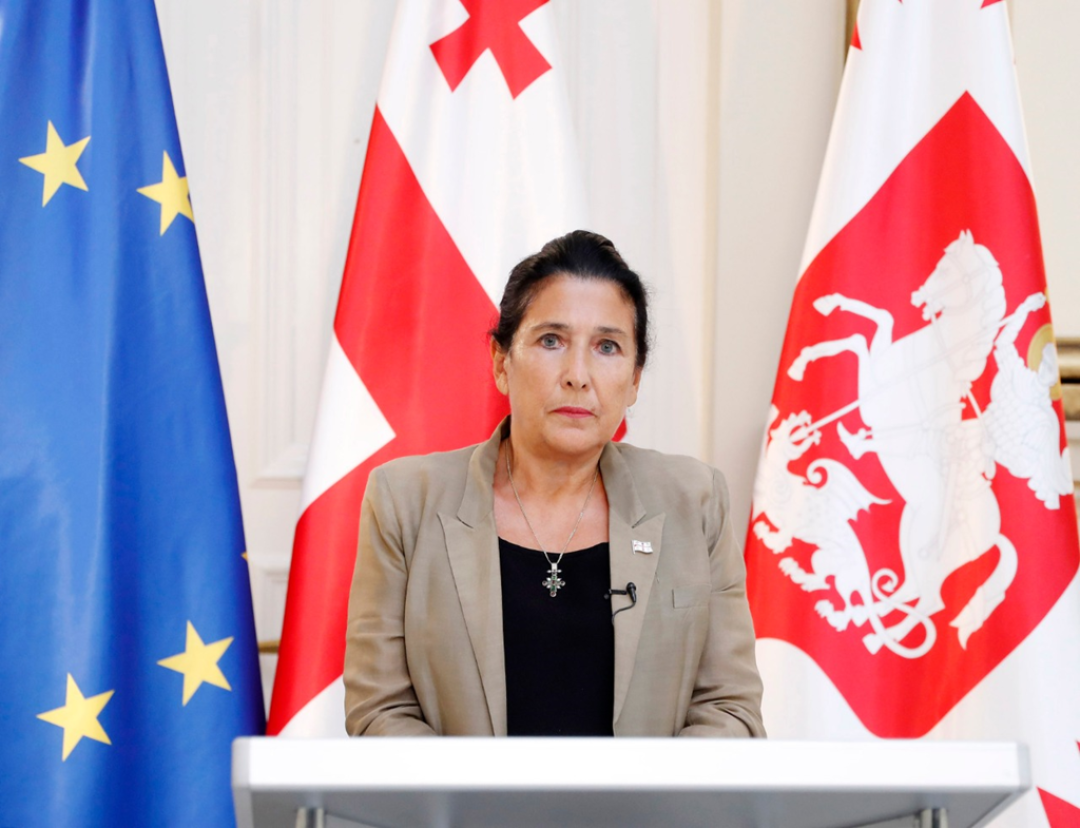
Zourabichvili Announces Council to Prepare for New Elections Amid Crisis

According to a statement from the President of Georgia, Salome Zourabichvili, a new council will be established, and its mandate will be to prepare for new elections.
Zourabichvili stated that a document is also being prepared to outline the minimum conditions for holding elections in the near future. "New forces will probably appear for the elections, and we must be ready for all of this," she said. "A council will be established to manage this period. The council's mandate will be singular: to prepare for new elections. A document is already being prepared and is likely to be ready tomorrow, which will outline the minimal conditions required to hold elections very soon. Then, we will work on preparations from all angles and possible directions. These new elections will truly be new, and probably new forces will appear. We must be ready for all of this," said Salome Zourabichvili.
President Zourabichvili has also been in contact with European leaders. In particular, she spoke with the High Representative of the European Union for Foreign Affairs and Security Policy, Kaia Kallas; the President of the Czech Republic, Petr Pavel; the Prime Minister of Sweden, Ulf Kristersson; the President of Poland, Andrzej Duda; and the President of Latvia, Edgars Rinkēvičs.
According to the same sources, the Georgian President introduced her offer to Bidzina Ivanishvili to her European colleagues, calling it the only way out of the crisis.
"The offer involves a meeting to agree on two main issues: the date for new elections and the definition of new conditions for the elections based on the OSCE/ODIHR conclusions," the statement says.
The First Vice-Speaker of Parliament, Gia Volski (representing Georgian Dream), commented on Zourabichvili’s initiative, stating that it appears the opposition has reached a common understanding that they need to introduce a political agenda and cannot just rely on rallies.
According to Volski, Zourabichvili has no constitutional right to call for elections. If she proceeds, it will be "an attempt to overthrow the government."
"Salome Zourabichvili had previously proposed creating a technical or shadow government to nominate a candidate for prime minister. Several political solutions were offered to the opposition but were rejected. Now, it seems they have come to the understanding that they need to introduce a political agenda and cannot just hold rallies and protests. A large part of society supported the 'Georgian Dream' government for its specific goals. No matter what format or platform they create, the main thing is what suits the majority of society. Therefore, I believe this is a political stunt—an attempt to show people the process with no real substance, except for the destruction that Zourabichvili and her radical political allies, united under the 'National Movement,' are pursuing."
Volski added that Zourabichvili does not have the constitutional right to call elections unless the parliament has expressed no confidence in the government. "If she takes this step, it will go from rhetoric to concrete action, which can be considered an attempt to overthrow the government. Such an attempt would be a criminal act, as outlined in the Criminal Code," argued Volski.
Additionally, Volski stated that there is no unified opinion within the opposition. "There is no unified opinion. The 'National Movement' has a developed plan that involves the forcible overthrow of the government. This plan is opposed by other factions, who want to take a political step. Despite these differences, I still believe there is a serious consensus to promote Salome Zourabichvili as a 'dove of peace.' If the government has serious and well-founded claims about these issues, they will argue that the peaceful offer was rejected by the 'Georgian Dream,' while the truth and the right path lie in what the 'National Movement' has long been advocating: the forcible overthrow of the government. This scenario is being pushed into society to rally additional forces in the streets, which will be difficult when the public fully understands what we are dealing with," said Volski.
See Also


Mirzoyan Meets US Deputy Assistant Secretary Joshua Huck

Azerbaijani President Holds Talks with UAE and German Business Delegations on Economic Cooperation

Grigoryan Confirms Armenia’s Readiness to Dissolve OSCE Minsk Group Upon Peace Treaty Signing

Azerbaijani Official Warns of Ecological Risks to Caspian Sea, Similar to Lake Urmia and Aral Sea

